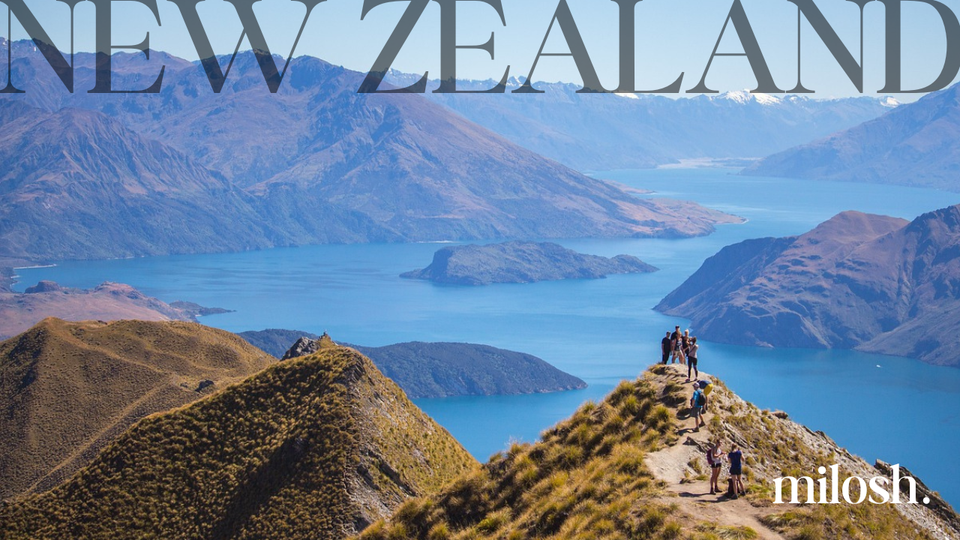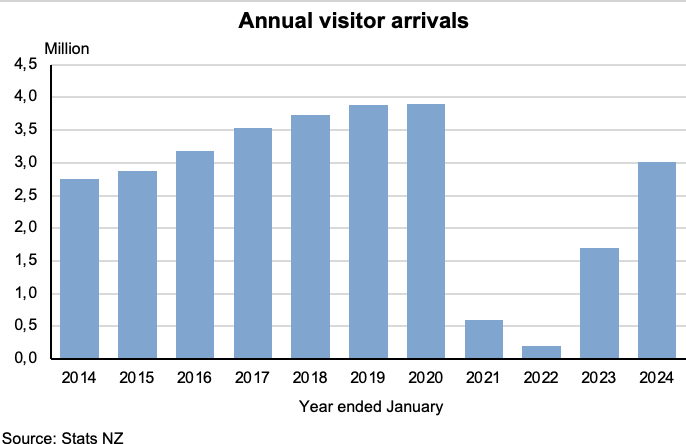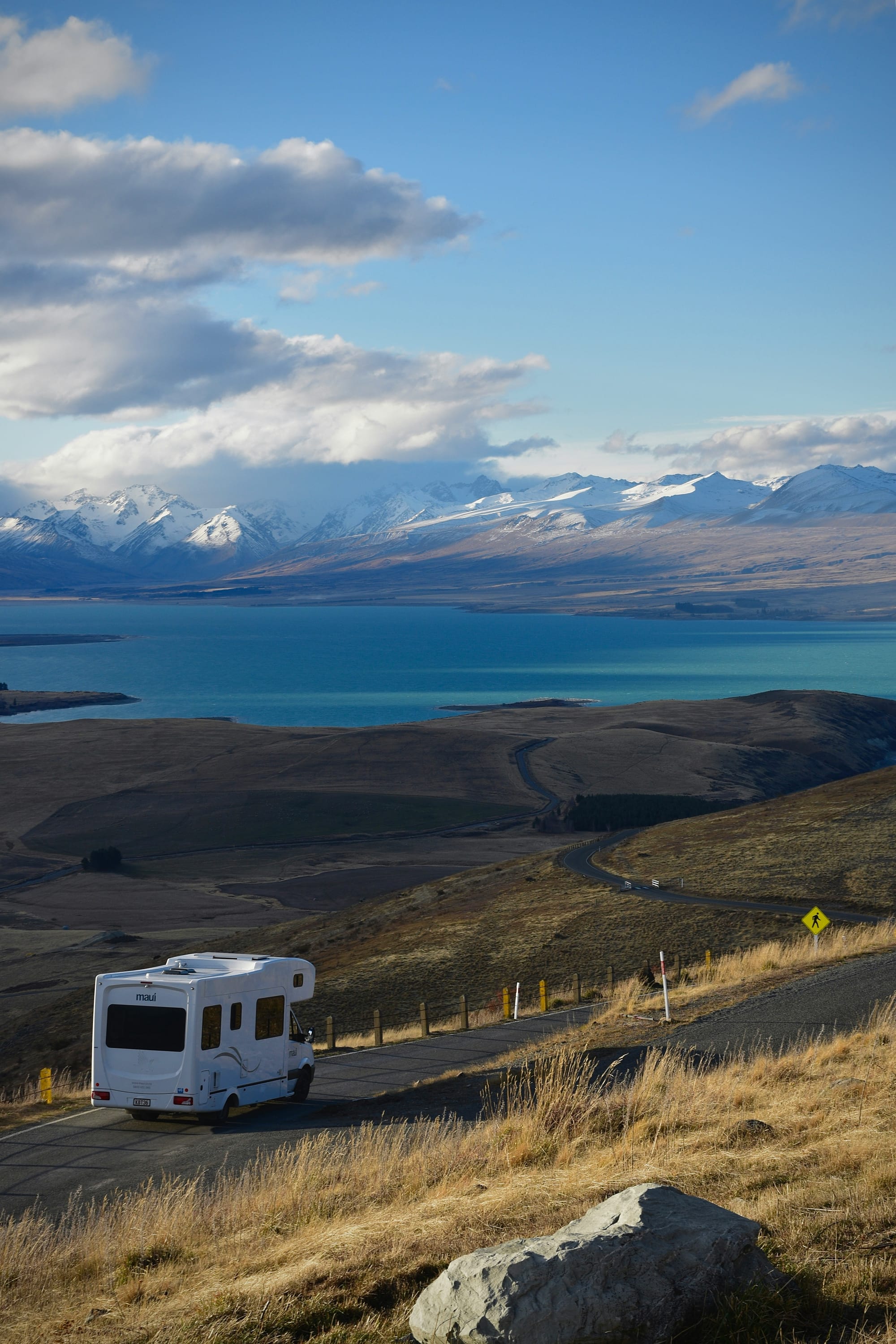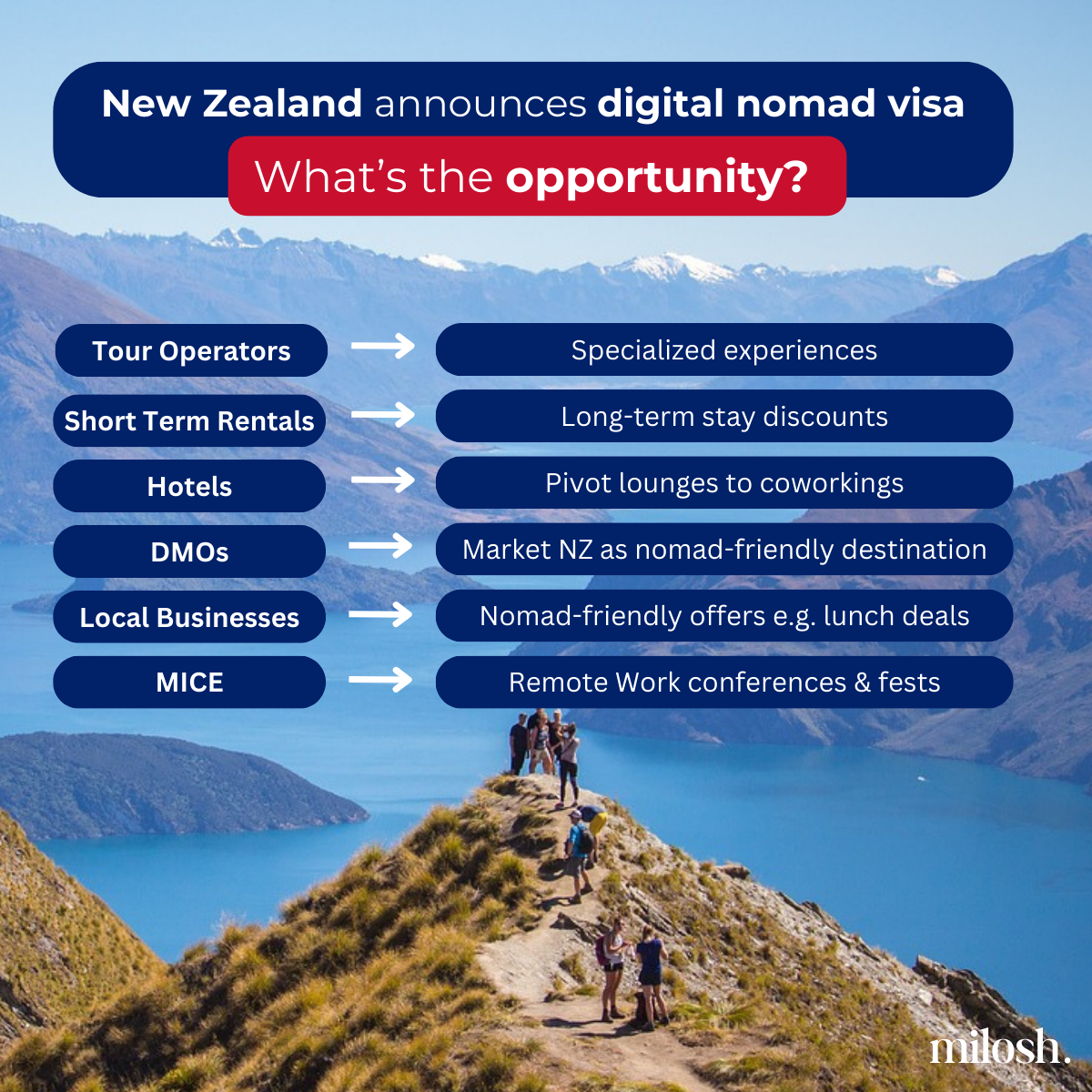New Zealand's Digital Nomad Visa - Where Is The Opportunity?

Tourism in New Zealand has seen rapid growth at the break of the millennia. The 100% Pure New Zealand campaign was launched in 1999, building New Zealand as a long-lasting and successful tourism brand. The timing was no coincidence - as the shooting of the Lord of the Rings movies was underway then. Peter Jackson's trilogy became a gargantuan success at the box office, and as a result - the breathtaking landscape of "Middle-Earth" suddenly topped tens of thousands of bucket lists. Not only the die-hard Tolkien fans but everyone who saw the movies started to picture themselves at the locations. This clever marketing strategy, combined with the film's success, led to a significant boost in tourism interest
2010s
This resulted in a rapid growth of visitors in the country in the 2010s. International visitor arrivals reach 3.8 million in 2018, an all-time high. Tourism became New Zealand's largest export earner, contributing $16.2 billion (20.4% of exports) in 2019. To many people, visiting New Zealand became one of the first things that came to mind when mentioning the country's name. The annual growth rate of international visitor arrivals peaked at 10.4% in the financial year 2016, showcasing the country's increasing popularity as a tourist destination.
Then, the pandemic happened in 2020. It shattered every strategy in tourism. And New Zealand was hit hard. With the borders closed to the outside world, the international visitor numbers shrank to just 186,000 in 2021.
This resulted in the government having to invest heavily and think of ways to recover & adapt from this hit. While some of the initiatives worked and others didn't, the numbers are at roughly 85% of pre-pandemic levels.
So, in search of the remaining numbers, the government decided to look no further than the up-and-coming wave of tourists - digital nomads. Just this week, the Kiwi government announced their initiative to attract remote workers & digital nomads, set to launch in January 2025.
New Zealand's tourism strategy so gets an unexpected addition - it will aim to appeal as a long-term destination for remote workers.

Digital Nomad Visa in New Zealand
Digital nomads can now stay for up to 90 days on a standard visitor visa while working for their out-of-country employer.
No separate "digital nomad visa" is required - it's a relaxation of existing visitor visa conditions.
After 90 days, they can apply for an extension of up to 9 months, but importantly - staying beyond 92 days in 12 months might trigger tax obligations to the local government.
Nomads cannot work for New Zealand-based companies, provide services to local businesses, or take jobs that require physical presence in a local workplace.
The entire focus of this "loose visa" is on remote work for foreign-based employers.
The objective is to boost tourism and attract skilled professionals, particularly in the tech sector. It's part of a broader strategy to accelerate economic growth and position New Zealand as a desirable destination for global talent, competing with other countries.

What Type of Nomads Would Come?
Could digital nomads be the solution to the issues of New Zealand and boost their tourism? I think it's important to be realistic and identify why the opportunities lie and where could people be coming from. New Zealand is a specific destination that will attract a specific visitor segment.
Given New Zealand's location and timezone, it could be particularly attractive to digital nomads from various regions.
Australia, as the closest neighbor with direct flights, is an obvious source of potential digital nomads. Southeast Asian countries like Singapore, Thailand, and Indonesia, with their globally popular digital nomad communities, might see many nomads interested in exploring New Zealand. Although I feel that the distance is often somehow overlooked. When I first lived in Thailand as a digital nomad, I was thinking about visiting New Zealand. Only to find out the flight between Bangkok & Auckland takes 13 (!) hours. For reference, that's as far as Eastern Europe - West Coast US.
East Asian nations such as Japan, South Korea, and potentially China could be sources of digital nomads looking for a change of scenery. While possible but less likely due to time differences, North America and Europe might still appeal to those seeking a complete change of environment.
An interesting opportunity lies with people who have previously stayed in New Zealand on working holiday visas. These individuals could potentially transition to digital nomad status by securing remote work with overseas employers, allowing them to continue enjoying New Zealand's lifestyle beyond their initial visa period.
What is important to note, is that New Zealand's outdoor activities align perfectly with digital nomads' preferences. Hiking, skiing, surfing, and other adventure sports are the most popular hobbies of digital nomads. The country's landscapes are a perfect fit for people who like to live active lifestyles.

What's In for Tourism Professionals?
The single benefit of digital nomads over traditional tourists is the prolonged period of stay. That provides more consistent revenue for every business in the tourism ecosystem. While I understand in the main season, the long-term stay may not sound as attractive - this is particularly handy in the shoulder & off-season. Not only is that a more attractive season to visit for digital nomads as it's less crowded, but it also provides stability to many businesses. As high-spending & long-staying visitors are particularly valuable in the off-months.
Despite the popular belief, digital nomads often integrate more into local communities & are seeking that "local feeling" more than traditional tourists. This also results in spending money at local cafes, restaurants, and shops almost daily.
To cater to digital nomads, tourism businesses may develop new products or services. Long-term discounts at accommodations, lunch packages at working coffeeshops, curated experiences with tour operators, hotel lounges, or libraries twisted into such co-working spaces, or organization of events & conferences are just some of the quick ideas.

Digital nomads are the greatest destination (brand) ambassadors you can ask for. They come, stay longer, care more, and they feel that "home away from home" feeling. That results in organic PR through social media and word-of-mouth.
Will NZ become a digital nomad hub? It's too early to tell & plenty of work to be done to even guess whether or not that can happen.
What's encouraging is the fact that key decision-makers are recognizing the digital nomads as solutions to their problems.
There is an estimated number of over 35 million digital nomads. If New Zealand could attract even 0.5 % of this market, it would mean over 150,000 new visitors.
Let's wait and see what action the local government will take.

